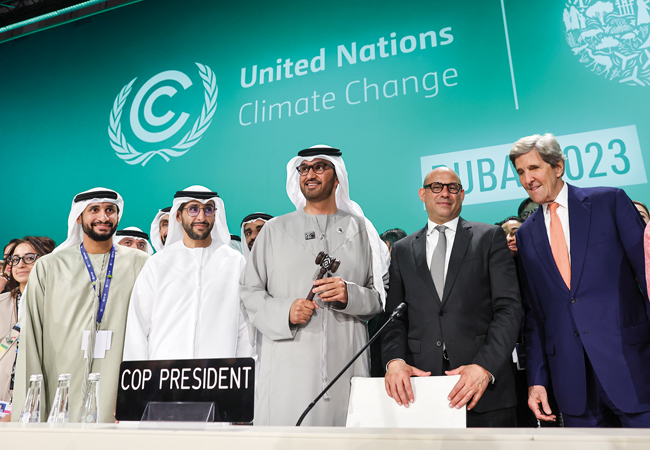
The end of the closing plenary at COP28
The UN Climate Change Conference (COP28) signalled the beginning of the end of the fossil fuel era when nearly 200 countries agreed a deal that calls on all nations to transition away from fossil fuels in energy systems ‘in a nationally determined manner’ to avert the worst effects of climate change.
The deal also calls for a tripling of renewable energy capacity globally by 2030, speeding up efforts to reduce coal use and accelerating technologies – such as carbon capture and storage – that can clean up hard-to-decarbonise industries. Industrial nations also pledged to contribute to the Loss and Damage Fund for vulnerable nations impacted by climate change.
CIBSE President Adrian Catchpole attended COP28, and participated in a panel discussion about the impact of decarbonisation on fostering good health and wellbeing.
The dedicated Built Environment Day was intended to create a global dialogue around the reduction of carbon emissions from buildings.
Highlights included:
- The UK, US, Canada and Germany signed a Green Public Procurement Pledge to use public projects to drive demand for near-zero emissions steel, cement and concrete. They also committed to developing harmonised emissions accounting standards and definitions for construction-related materials.
- A report making the business case for financing climate adaptation and resilience was published by Boston Consulting Group and the United States Agency for International Development. It lays out the opportunities for private sector finance.
- The World Green Building Council published a letter, signed by hundreds of global groups, urging leaders to deliver the regulations to drive change within the sector and supporting the Buildings Breakthrough




